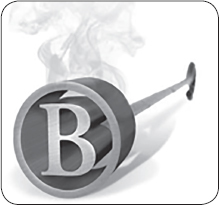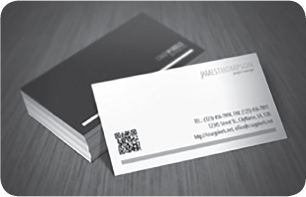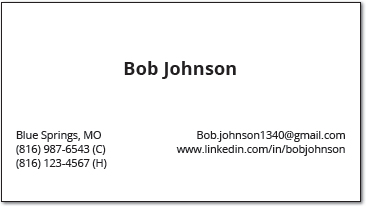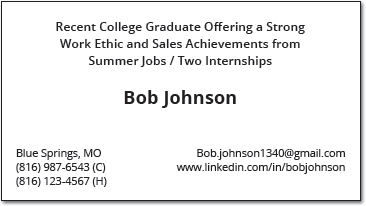
Essential Job Search Topics and Tools
Job Skills, Professional Qualities, and Character Traits

Start by doing what’s necessary, then what’s possible, and suddenly you are doing the impossible.
— St. Francis of Assisi21
Job skills come in two forms. First are the technical skills (expertise or ability). If you have a degree in engineering, you know engineering things. With a degree in education, you have knowledge about teaching, and so on. We will refer to these skills as your “hard skills.”
The second type of job skills used in most professional level positions is “soft.” They are in addition to your technical education and experience. Here is a list of some sought-after soft job skills (not listed in any order of preference):
• Communication Skills (writing, listening, and speaking)—This is the most frequently mentioned skill employers desire.22
• Analytical Ability (problem solving)—This is your ability to view a situation, identify issues, evaluate relevant information, and implement a plan.
• Time Management (prioritizing)—This is your ability to prioritize and devote the appropriate amount of time to a task.
• Innovation (out-of-the-box thinking)—This involves harnessing creativity and reasoning skills.
• Collaboration (teamwork)—This means working with others toward a shared goal.
• Management (people leadership)—This is your ability to gain buy-in or respect from a team, lead by defining goals and methods, and manage and guide a group toward shared goals or production targets.
• Customer Focus (customer service)—This is your understanding that your employer must please and serve customers to be successful.
• Business Understanding (business acumen)—This is your ability to understand business realities and the influences in the market and how they affect your employer.23
Closely aligned with the concept of soft job skills are Professional Qualities or Character Traits. Here is a list of professional qualities and traits sought after by employers:
• Honesty—This is the foundation of every employment relationship. An employer must be able to trust you and respect you as a professional for the employment relationship to last and flourish.24
• Positive Attitude—Make no mistake—this is a big deal. Employers gravitate toward people who show enthusiasm, energy, and a positive outlook.25 As you will read later in this book, displaying a positive attitude will give you a competitive advantage in interviews and is a career management strategy. A positive attitude is that important.
• Interpersonal Relationships—Employers want employees that can get along with other co-workers. They avoid those that “rock the boat” and do not fit the culture.
• Work Ethic—Employers seek employees that put forth their best efforts at all times. They seek out employees that are motivated, internally driven, and stick to it. They want employees who are persistent and passionate about their jobs.26
• Dependable—Employers seek out employees who will show up on time. They want to rest assured you will “be there” for the company.
• Willingness to Learn—This is your intellectual flexibility and curiosity. Always be willing to learn about new technology and improve your skills (and discover new ones). Markets change. Business changes. Your industry changes. You must be open and pursue opportunities to learn and change.27 Doing so increases your value and marketability as a professional. Even though you are a recent college graduate, never stop learning and growing.
These skills are the “bigger” ones. Employers also look for these professional skills and qualities: Accountability, accuracy, ambition, assertiveness, autonomy, competitive, consensus-building, decision-making, enthusiasm, goal-oriented, initiative, motivation, organization, presentation skills, quality management/improvement, tactfulness, and ability to work under pressure, among many others.
Once you have identified your job skills (through your education and experience), soft skills, and professional qualities (character traits), there are several things you can do with this valuable information. Your skills and qualities could be
• A component of your personal branding message.
• Woven into the summary section of your resume and LinkedIn profile.
• Mentioned in various sections of your resume.
• Used to write success stories based on your internships and summer jobs.
• Included in cover letters and emails.
• Included as a part of your elevator speech.
• Used in networking conversations.
• Used in interviews.
★ The key to using these skills in your job search is to translate those skills and your unique professional qualities as valuable and match them to solve an employer’s need. Provide success stories of the skills and qualities in action (more on Success Stories in a minute). Providing this connection makes it easy for the employer to see your value The connection speaks their language.
Soft skills and professional qualities cut across industry lines. For example, an employer will always value an employee with a strong work ethic whether they are an accountant or a zookeeper.
What the Coaches Say:
From your experience, how frequently do employers ask about or explore soft skills with recent college graduates?

More and more employers are reporting that the candidates they interview lack the soft skills required for the job they are trying to fill. Without the ability to communicate effectively, work well in a team, and embrace a company’s culture, employers know new employees will not be successful. I feel most college graduates have used the soft skills—employers are seeking—during their academic career. Graduates have a hard time translating their academic experience into terms prospective employers understand and employers do not know the questions to ask to start a conversation about job-related soft skills.
Lorraine Beaman, MA, ACRW, CARW, NCRW, CEIC, MCD

Soft skills are inquired about both explicitly and implicitly with recent college graduates. An implicit inquire of soft skills could be in the form of how a company examines a resume and cover letter. If an innovative company like Disney writes in their job description, “we’re seeking a really dynamic, people-driven, and innovative person for X position,” and if the tone of the documents from the recent graduate writes from, is bland, direct, and lacks luster, Disney may assume that person doesn’t have the communication or personality needed for the role. Explicit examples when interviewing may be in the form of questions such as what role the recent graduate like to play on a team, or how they manage conflict, or tell me about a time you failed on a project or what feedback would a previous supervisor share with us from your performance evaluation? Those types of questions are not only frequent, but a way for an employer to learn the level of soft skill development and competence a recent graduate has. It’s imperative, graduates have an understanding of how to articulate both implicitly and explicitly through their marketing documents and in person, they have the soft skills they seek in a future employee.
Jered Lish M.S., Gallup-Certified Strengths Coach, GCDF
Understanding the Employer’s Mindset

There isn’t a ruler, a yard stick or a measuring tape in the entire world long enough to compute the strength and capabilities inside you.
— Paul Meyer28
The Business World
There are a variety of motivations that prompt an employer in the commercial market to hire. However, the true essence underlying each motivation comes down to two reasons: to make or save the company money. We briefly touched on this topic when we discussed the “real world.”
The sole reason a job exists in a company is to contribute to the profitability of the company. The level of your performance in your job must add value. Depending upon the job, you can help an employer’s bottom line in two ways:
1. Making the company money (Generating new revenue)—You can achieve this from being a part of a team that works on sales, client retention, product development, and so on. You help the company make money by being a part of a group that focuses its effort towards generating new revenue and helps keep the revenue the company already has.
2. Saving the company money (Productivity improvements)—This is achieved by contributing to a team that focuses its efforts on increasing productivity, increasing or creating operational efficiency, saving time, making others’ jobs easier (more efficient or effective), and so on.
There are many ways to generate revenue or save money for a company. Revealing them to an employer establishes or increases your value (Your ROI – Return on Investment). Here is a short list to get you thinking:
• Think about your duties and responsibilities from your internships and summer jobs and how they have value to the employer.
• Identify your professional qualities and character traits, how you used them, and the resulting value provided during your internship and summer jobs.
• Involvement in duties and responsibilities that saves time, efficiency, and streamlines workflow.
• Improve company image and branding—interaction with the public or consumers.
• Expand business/sales through existing accounts.
• Enhance competitiveness through best practices, innovation, and so on.
• Improve client or customer experience, customer satisfaction.
• Improve company culture, morale, and employee retention.
The Non-Commercial Professional World
As previously mentioned, there are several motivations that cause an employer to hire. In the non-commercial professional world, the driving motivation is the continued achievement of the organization’s mission—its purpose for existing. This is often found by reading the organization’s mission statement. As a recent college graduate, the presentation of your education and skills must correlate and advance the organization towards its stated purpose.
Due to the number and breadth of these career fields, it is difficult to list specific items like those listed in the business world. However, there is a logical way to approach the situation. Start by reading and understanding the organization’s mission. With that in mind, try to identify reasonably specific results, professional behaviors, and character traits that would advance the purpose of the organization through the position you are pursuing. Then, list all education, experience, activities, and character traits that would be valuable towards the achievement of the mission or purpose.
This process requires some conceptual and abstract thinking. However, by taking the time of thinking through this intellectual exercise, you will begin to think like the employer (of these non-commercial organizations) and understand how you can sell yourself towards fulfilling the organization’s mission.
Employers who hire recent graduates are looking for any substantive value you can bring. They know you will not have made an invention or discovery that is going to revolutionize their industry. However, by understanding their mentality then selling your education, internships, summer jobs, campus activities, and athletics, you give them a justification to hire you.
Knowing What an Employer Wants in an Open Position
An employer’s purpose when hiring is to make the company profitable or advance an organization’s mission. There is a way to gain additional insight into an employer’s mind and determine what he or she is looking for in the position (or position types), but you’ll need to do a little research, as follows:
1. Gather Job Postings. Go online and collect some well-written job postings for the kind of entry-level jobs you would be interested in. Websites such as www.indeed.com and www.simplyhired.com are rich resources.
2. Create Your Own Master Job Description. Create a document. Call it your “Master Job Description” (or anything else creative you want, i.e., “My First Job”).
a. Title. Start with titles. What words do employers use? These titles will likely reflect jobs you target when you search. The key is to use these same words—or very similar—on your resume, LinkedIn profile, cover letters, elevator speech, and so on.
b. Skills, Duties, and Responsibilities. Examine the job postings for skills, duties, and responsibilities that are common or frequently mentioned. Identify these skills and note how often they are used.
c. Match. Tie these skills sought by employers to your experience, professional qualities, and character traits. Using the keywords from the skills and titles in your written communications (including your resume) raises your chances are of getting noticed, because you make yourself directly relevant to an open job position.
Once it’s done, familiarize yourself with your Master Job Description. Think about it. What would you look for to fill this position if you were the hiring executive? Be objective. Pause . . .
Congratulations—you are thinking like an employer!
Now that you’re thinking like an employer, relate or match how your education, experience from internships and summer jobs, campus activities, professional qualities and character traits would have value to an employer while keeping your Master Job Description in mind. This is a crucial step, because you’ll be tying an executive’s hiring needs to your own experience, education, professional qualities and character traits.
As you proceed, remember these insights as you create other communication tools (resume, LinkedIn profile, cover letters, emails, and so on).
Matching Experience and “Word Clouds”
There is a very clever way to help match your experience with what an employer is looking for in a position(s). “Word clouds” are images made out of large words interspersed with smaller ones (you may have seen them). Some websites that create word clouds include www.wordle.net, www.tagcrowd.com, and www.worditout.com. Here’s how you use this concept to your advantage:
Copy a job description electronically, go to one of these sites, and paste the job description into the space provided. Give it a second and voila, you have a word cloud. Pay particular attention to the larger words. Those are the words that are mentioned most frequently or deemed more important by the website’s programming. Write down these larger words, and make sure they appear on your resume, LinkedIn profile, and other communications. For example, let’s say you see terms like “customer experience” or “client success” in the word cloud. Therefore, you want to use that terminology to match the language employers are using (at least for that employer). Using the same words as the employer is “speaking their language” when you communicate with them.
This technique works especially well when you have an actual job description on a position you are interested in.

You were designed for accomplishment, engineered for success, and endowed with the seeds of greatness.
―Zig Ziglar29
An essential part of your job search preparation will be creating your accomplishment history. This will be a list of your most significant experiences and successes from work, internships, academics, volunteer projects, extracurricular activities, community engagement, and so on. Accomplishments are honors and achievements that prove that you exceeded average performance in academics, athletics, employment, internships, or undergraduate research. Gather documentation that will support your accomplishments. This would include all job and internship performance reviews, letters/emails of appreciation, letters of recommendation, awards, scholarships, committee appointments, and anything else from your work or collegiate experiences that are or would support an accomplishment. Once you begin documenting your accomplishment history, you may find you have more accomplishments than you think. These accomplishments, whether one or twenty-one, might be what differentiate you from others.
Accomplishments are important to your job search. It has been said that qualifications (education) often get you an interview, but accomplishments can get you the job.30
• Demonstrate your ability to contribute to the productivity and/or profitability of the employer
• Emphasize past achievements and successes by using quantifiable and measurable information
• Indicate that past successes are a predictor of future performance
• Highlight the value, benefits, and contributions that you bring to the organization
• Showcase your transferable skills, professional character traits, and experience
Accomplishments also include digital technology proficiencies whether they are in Microsoft Office Suite, Excel VLook-up, IF Function, and Pivot Tables, Google Drive, or in an industry-specific platform or software program, such as a CRM (customer relationship management program) or POS (point-of-sale) system. Your accomplishments in this area might also include project management, data analysis, programming, social media, and technical writing.
The most impressive accomplishments have measurable improvements and results from an organization’s perspective. How did you contribute to the organization’s success? Or, how did your actions lead to a beneficial result?31 The specific value of your accomplishments should be readily apparent to a talent acquisition professional.
What is your advice to a recent college graduate about the value and use of accomplishments in a job search?
When college grads think about accomplishments they need to think about how they participated in clubs or activities on campus. Did they take on leadership roles and what were the results? Did they contribute to raising funds for a charity? If yes . . . how much, was it more than others, what percentage to the total amount raise did you raise?
Having metrics (numbers) on a resume really makes for a stronger resume and better networking conversations. Numbers allows the reader to understand how you contributed or what you did. So if you made phone calls to alumni to raise funds don’t just put that on the resume. Instead put something like: Generated donations by proactively calling 70+ alumni during phone-a-thon resulting in $2,540 worth of pledges.
Someone making 70+ calls was working hard then adding a dollar amounts for how much you raised shows you delivered results. (Results are what all employers are looking for.)
Think about accomplishments in all different areas: academic projects, on-campus work, volunteering, sports, clubs, research, and off-campus work. Keep the accomplishments relevant to your target job, if possible.
Ellen Steverson, NCRW, GCDF, CEIC

One of the goals prospective employers use interviews for is to ascertain how hard you will work. Your accomplishments help prove that you have gone above and beyond. Recruiters and hiring managers know that the best predictor of future performance is past performance. Many new graduates make the mistake of only listing job duties – or in other words, what every person who has held that role has done. It’s your job to show evidence of how you have gone above and beyond – accomplishments are a tool for you to demonstrate this. Including facts and figures to support your work will also help. Recruiters and hiring managers appreciate achievements supported by hard data.
An example in action:
Before:
Responsible for sales to end users via website. SEO main sales tool.
After:
#1 Summer Intern Sales Associate – outperforming closest associate by 44%. Exceeded outbound calling expectations by 60%.
The first example reads like a job description. Being responsible for sales to end users is the job duty of every sales representative. The second example gives scope, how this individual compares to both other sales reps and to goal expectations.
Paula Christensen, CPRW, CCMC, CJSS

There is no passion to be found playing small—in settling for a life that is less than the one you are capable of living.
— Nelson Mandela32
A success story is a description of an event that provides evidence to the hiring executive regarding the use of your education, skills, abilities, competencies, qualities, and motivation to succeed at the job for which you are interviewing. In a business context, success stories are case studies supporting your professional value proposition (what you’re good at).
Writing success stories can be fun and challenging at the same time. Think about school projects, challenges and problems you encountered during your internships and summer jobs. Think in terms of what you did to identify, prevent, and solve a problem. Or, what you did to achieve a goal. What did you do? How did you do it? What was the positive result of your efforts?
It’s highly recommended to compose several success stories as a part of your job search. By writing them down and reviewing them, you will be able to more easily remember them, have ready responses to interview questions (especially for behavior-based interviews), and use them in written communication. These success stories will differentiate you from other college graduates, support your brand, and display your qualifications.
When writing a success story, there is a simple formula that seems to work:
Describe the challenge you faced, task you were assigned, or a goal you wanted to achieve. This could include an unexpected situation you faced. Describe what you did, or the plan of action you took, and the positive result. Try to quantify the results with numbers or percentages whenever possible. This could be tough to do as an intern or with your summer job, but if you can it will increase the impact of your story. If you received (or can get) a positive recommendation from a supervisor based on what you did or the results of the project, that will work well, too. The recommendation acts as proof of a job well done.
When you write your success stories, do so with different skills and competencies in mind (transferable job skills, professional qualities, and character traits). For example, stories that reflect true technical ability, analytical thinking, communication skills, work ethic, leadership, and so on, including complementary combinations of skills and competencies within a single story.
When preparing for interviews, read the job description (if you have one) and think about what the employer is looking for (in terms of hard skills, soft skills, and professional qualities). Then create some success stories that align with what you believe will be asked of you in the interview.
Preparing success stories is powerful because most college graduates will not do this kind of preparation. You can clearly differentiate yourself by having well-prepared success stories.
It will give you a competitive advantage in your job search. You will be viewed as better qualified and prepared.
What is your advice to recent college graduates about writing success stories when preparing for a job search?

This method is incredibly helpful especially when brainstorming potential answers for behavioral based interview questions. I’ll often have students and recent graduates map out multiple examples of how their strengths have helped them successfully navigate a challenge they were facing. I’ll utilize the S.T.A.R method [functionally identical to the C.A.R. method previously mentioned] of interviewing (situation, task, action and result) and have them write out how their contributions led to a positive outcome using that framework. The more experiences a recent graduate reflects on, the more stories they’ll have to share in an interview. Nothing worse than using the same story over and over in an interview, so my goal when helping students to write their success story is to think of many diverse stories as possible. Writing down success stories is a fantastic way to prepare and land a great interview.
Jered Lish M.S., Gallup-Certified Strengths Coach, GCDF

Review several job descriptions for the type of position you are seeking. Highlight all of the job requirements and preferred skills/experience. Circle the ones you have. Now create stories that show your effectively using each of these skills or telling about your experience. Structure the stories so it is easy for the interviewer to understand the situation, the challenges you faced, the actions you took, and the outcome.
Lorraine Beaman, MA, ACRW, CARW, NCRW, CEIC, MCD

Always remember: a brand is the most valuable piece of real estate in the world; a corner of someone’s mind.
— John Hegarty34
The idea of creating a “brand” for yourself as a recent college graduate likely sounds very odd. How can you have a brand before you even have your first job? Actually, doing so is not as difficult as it may sound and it will significantly differentiate you from other college graduate job seekers.
A personal brand announces your distinct talents and what you represent to the marketplace. The process of branding is discovering who you are, what you are, what your unique abilities are, and communicating them through various mediums as a part of your job search.
There are numerous benefits of creating an impactful brand:
1. You differentiate yourself from other recent college graduates who are also looking for a job, and gain a huge advantage.
2. You create the initial impression the employer has of you.
3. You can more quickly convey your value to the employer.
4. You can more easily match your skills and value to the employer’s needs.
5. You can better determine which opportunities to pursue.
The drawback of not having a brand is simple: You become a commodity—you’re just another college grad looking for a job. Perhaps worse, employers will determine for themselves what they want to see in you. They will cast you in a light based on their own conclusions, which may not be the message you want to communicate.35
Perhaps the biggest benefit of creating a personal brand as a recent college graduate is the self-awareness of your unique skills, experience, education, qualities, and traits and the recognition of how they all work together to create messaging for who you are. You will project the value of your abilities more clearly, resulting in a job that’s a good match for your skillset, professional qualities, and character traits. Branding can also help you set your sights on what you want your future career to be.
The branding process requires introspection and thoughtful reflection. In some cases, thinking through your branding can be both an emotional and an enlightening event.
Think of it this way: As a college graduate job seeker, your goal is to connect with employers both intellectually (you can do the job) and emotionally (you’re a good fit). Having a well-crafted, personal brand helps on both levels. You must be perceived as the right candidate and through branding, you are better able to align yourself to an open job position.
Create a succinct brand. Think of it, in analogous terms, as a tagline or a theme that will be at the foundation of your job search.
To help determine your brand, ask yourself some questions:
1. What am I good at?
2. What are the academic or job achievements I am most proud of?
3. What qualities and character traits do I have?
4. What have I been recognized for?
5. What is my reputation with others (friends, supervisors)?
6. What have been my strong points in past jobs or internships?
7. What differentiates me from others with the same job or internship?
8. What qualities do I have that I can promote?
The answers to these questions and the thoughts they provoke are essential to forming your brand. Now, synthesize the answers and thoughts into single words or short phrases that capture the concept of your responses. Here are some examples:
Recent College Graduate Offering a Strong Work Ethic and Sales Achievements from Summer Jobs / Two Internships
College Graduate with Double Major, Marketing and Advertising / Internship with New York Marketing Firm of Travis and Hudlin
Client-focused College Graduate with Customer Service Experience in a Call Center of a Fortune 500 Corporation / Strong Job Performance Reviews.
When you come to this book’s resume and LinkedIn chapters, you will see a few examples of branding in action.
Branding Is Important
Creating a brand is important and a clear differentiator. Reasonably few recent college graduates will know the importance of creating a brand or take the time to do it. Take the necessary time to reflect on this. The purpose of branding is to get you known for the value you offer, get you in the door, and differentiate you from other college graduate job seekers.
What the Coaches Say:
Is it possible to create a professional brand as a recent college graduate? Please explain.

Absolutely! A student is creating a brand throughout college whether they know it or not. They are marketing themselves and showcasing their aspirations, attributes, value-proposition, and identity everyday both on and off campus. To build a brand, a student should identify personal strengths and ROI to share that with campus peers/professors and potential employers, then move them forward. To do that, they can join clubs, join professional associations as a student member, be a teacher’s assistant in a subject area, complete internships and apprenticeships, and volunteer to elevate their brand.
Dr. Cheryl Minnick, NCRW, CCMC, CHJMC, CAA
You bet! I encourage students to use such tools as Portfolium.com, build their own website, or find a platform that’s industry specific to highlight moments of brilliance in their collegiate or life experience. Visual branding is one of the easiest ways to leave a great impression on a future employer. Any good professional branding of oneself should leave the viewer wanting more and it should stimulate curiosity around how placement of your talents could be specifically utilized within their organization.
I worked with a sophomore international student from China who built a website for herself that highlighted the impressive accomplishments she had achieved both in high school and in her first year of college. She had a career dream to work at one of the top four accounting firms in the world and she had specific goals and strategies identified on what she needed to do to make them happen. She applied for an internship at Deloitte (one of the big four accounting firms in the world) and they were so impressed with how articulate she was both in writing, her marketing documents and her digital presence, they hired her as an intern at the end of her first year of undergrad. After completing the internship at the end of her sophomore year, Deloitte offered her full-time employment and she’s one of the only students I’ve ever coached to have a professional, full-time job offer with two years left of school to complete. Her success I believe to be as a result of her incredible work ethic, being goal-oriented, and she ultimately developed a brand around her competence, skill sets and innovation that Deloitte saw into the future and thought, “we cannot lose her to another company.” Talk about the power of a professional brand!
Jered Lish M.S., Gallup-Certified Strengths Coach, GCDF

The only people who don’t need elevator pitches are elevator salesmen.
— Jarod Kintz36
By definition, an elevator speech is “the 30-second speech that summarizes who you are, what you [can] do, and why you’d be a perfect candidate.”37 In essence, it is your job search commercial.
The purpose of your elevator speech is to grab the listener’s attention, quickly provide relevant information, and initiate conversation. A crisply delivered elevator speech is a differentiator from other college graduate job seekers. While others may struggle and stumble, you will be able to concisely inform the listener about your professional value proposition, your own brand.
Take some time and develop a handful of variations for different situations, including all forms of networking, interviews, association and industry conferences, job fairs and strictly social gatherings.
Here are some tips on crafting your elevator speech (a couple of examples can be found at the end of this chapter):
1. Know your target audience. This single factor will give your speech the most impact. If you are speaking with a HR talent acquisition professional, you may choose to promote your education and character traits followed by summer experiences. If you are speaking with the actual hiring executive, you may choose to promote your experiences with summer jobs and internships (realizing that the hiring executive is looking for previous experience and shorter start up time). The key is to promote what you have in your background and education that will most impress the person you are speaking to.
2. Know what your value proposition is. This is where your branding comes into full play. Identify as precisely as possible what you offer and what benefits you bring to an employer.
3. Write down ideas about what you want to possibly say. Give yourself some time to ponder the ideas and concepts you may include—it isn’t necessary to start drafting the speech immediately, but begin with notes reminding you of your bottom-line message. The objective is to gather concepts and ideas first, so be careful not to edit yourself. Refer back to the concepts you used to form your brand.
4. Write your speech. Now that you have ideas and concepts about yourself to promote, begin drafting your speech’s initial version. Here are some steps to guide you.
a. Identify yourself.
b. Statement regarding your value proposition as a professional.
c. Accomplishment or proof statement that supports your value proposition as a professional.
d. Call to action in the form of a subtle invitation (a question perhaps) to have a conversation.
5. Tailor the speech to them, not you. As a rule, people are tuned into WIIFM (What’s In It For Me?). So, review what you have written to ensure your message addresses their potential needs.
Instead of, “I am a recent college graduate looking for my first job. I’m open to most anything,” you could say, “I am a recent college graduate with a double major in marketing and advertising. I have two summer internships with two marketing and advertising firms. I’m looking for my first professional level job with a marketing firm where my education and experience can have the most impact.” Hear how much more impactful that is—and how much more effective the branding is?
6. Practice, practice, practice. Read your speech aloud. Then tinker with the words. The goal is to have a speech that sounds authentic and confident. Now, memorize the speech and rehearse it. Consider practicing in front of a mirror or recording it on your smartphone. This could feel odd, but with practice, your delivery will be conversational (one of the keys to making it effective). Smiling while saying the words will increase the impact of the speech.
When you are ready, try the speech out on some of your friends. Make eye contact, smile, and deliver your message with confidence. Afterward, ask them what they think. If their response doesn’t line up with what you want from your speech, the speech still needs work.
7. Prepare a few variations. You’ll want to have a different variation of your speech for an HR talent acquisition professional at a career fair or conference than for a personal friend of your parents at a social gathering. Much of this will happen naturally as you speak with people (as long as you remember your talking points).
You can create shorter and longer versions with your computer’s word-count function. It’s generally accepted that you can comfortably say about 150 words in sixty seconds.38
Remember, the purpose of an elevator speech is to quickly inform the listener of your value proposition as a professional and begin a conversation. Putting these tips into action is the real trick. Check out these websites that contain scores of elevator speeches (not all are designed for job seekers) for a variety of industries: www.improvandy.com and www.yourelevatorpitch.net.
“My name is Justin Bryant and I recently graduated with a marketing degree from State University. I have work experience in marketing having interned with the marketing and advertising firm of Price and Osborn where I have recommendations from the managing partner for my job performance. I also have leadership skills having been the president of my fraternity, Sigma Phi Theta. I am conducting my first job search for my first professional level position. I’m looking for an opportunity with either an independent advertising firm or the marketing department of a larger corporation. Could you tell me more about your organization?”
Or, “Do you have any advice on what you see in the jobs market in this arena?” Or, any other question that can create a conversation. Here is another example:
“My name is Emily Jordan and I recently graduated from Private University with a degree in Education. For my classroom teaching semester, I chose to teach in a rural public school. I was successful in dealing with behaviorally challenged students from non-traditional family arrangements. I am strategically patient but know when to be stern. I’m looking for my first entry-level teaching position. Have you by chance ever hired a teacher who graduated from Private University?”
What the Coaches Say:
What is your advice for recent college graduates in creating an “elevator speech”?

Your “elevator speech” is the self-introduction you will use more frequently than any of your other job search marketing tools. It is the answer to the statement, “Tell me about yourself,” the way you will greet recruiters at career fairs, introduce yourself to prospective employers, and it is the information people will share when they are networking on your behalf. Also known as the “30-second me,” the elevator speech needs to be carefully crafted, practiced, and shared. It should include your name, your field of study, your most outstanding job-related qualifications (up to 3), and a quick story that highlights your experience.
Lorraine Beaman, MA, ACRW, CARW, NCRW, CEIC, MCD

Elevator speeches might be one of the most important things to develop, practice, and have prepared at all times. As far as developing your pitch, remember it should always lead to conversation. Lead with areas of passion, things that excite you, things your proud of. Identify things that are memorable. You want the person who just heard your pitch to remember you so share something interesting about yourself.
I once asked a colleague how she got into career counseling and she shared “because I was a bartender and was giving career advice regularly. I thought I should get paid for it.” She later said that integrating “from bartender to career coach” tended be an interesting hook for most people so she’s always used that in pitches for when people are getting to know her and her story. In short, have fun developing your pitch, be creative, be memorable, and share it with the world!
Jered Lish M.S., Gallup-Certified Strengths Coach, GCDF

High expectations are the key to everything.
— Sam Walton39
Having business cards during a job search is a differentiator for a recent college graduate. Having a business card projects you as a professional (even though you are a recent college graduate). Circumstances will present themselves where providing a business card can create a positive first impression whereas providing a resume is awkward or inappropriate.40
There are four different approaches to the standard three-and-a-half-inch by two-inch business card for a job search: traditional business cards, networking business cards, resume business cards, and infographic business cards.
A solid case can be made for getting two sets of cards to use in different settings. For example, traditional for truly social events, and a networking or resume card for job networking events.
Here are examples for each kind of job-search business card:
This business card is simple in design. It contains only your name, city of residence, street address (optional), telephone number(s), email address, and LinkedIn profile address. It is used for contact information-exchange purposes.

Networking Business Cards
Networking business cards contain the same key contact information as a traditional card, except this variety also has a concise statement regarding your career focus and unique value proposition or brand.41 Remember to keep the messaging consistent among your networking card, resume, elevator speech, LinkedIn profile, and so on. There is some room for variation, but the theme of these job-seeking tools must align.

A resume business card takes the networking card one step further. Here you can put key educational qualifications and accomplishments on the back. This next point is optional, but leave a little white space at the bottom of the back of the card, allowing the recipient room to jot a note about you. Hopefully the note will read, “Need to call.”42

It’s fine to mix and match the concepts from any of the three types. For example, you may determine that it would be best that the front of the card has a traditional look. But on the back you may choose to put a branding statement and a couple of college achievements. That’s fine. Exercise your best judgment.
Business cards can be printed at most office supply stores and are reasonably inexpensive for a few hundred cards. In addition, many online companies produce business cards inexpensively. And if you’re technology savvy, you can print your cards using special paper and a template that is already loaded on most computers.
When creating your job-search business cards, keep the design simple. Use traditional fonts and conservative, business-appropriate color schemes. If you are pursuing jobs in advertising, media marketing, or other creative fields, you have more latitude with design and use of colors. Since you have put your time, effort, and money into creating your business cards, consider purchasing a business-card holder to keep your cards clean and crisp. Providing a tattered business card defeats a great first impression.
An infographic business card is a very unique concept. It is not a “business card” in the traditional sense. Instead, it is more of a “networking handbill.” In concept, an infographic business card is a colorful, high-resolution document containing impactful and persuasive college background information and accomplishments presented through creative designs.
Conceptually, an infographic business card is larger than the standard three-and-a-half-inch by two-inch business card. Although there is no hard-and-fast rule, a four-by-six-inch card is a good starting point.
The infographic business card is ideal for networking events, career fairs, especially for association gatherings and conventions. Printed on business-card-grade paper, with colorful graphics, it is a clear differentiator. If it’s not too large, it can still easily slip into the inside jacket pocket or portfolio of a networking contact or hiring executive.
If this infographic card idea appeals to you, it is highly recommended that you use the services of a professional with experience creating infographic resumes, as this experience translates directly to infographic cards. Or you can check out Piktochart (www.piktochart.com) if you want to try your hand at creating your own infographic document. There are advantages and disadvantages that need to be carefully considered before you pursue this job-search tactic (Refer to the topic on Infographic Resumes).
What the Coaches Say:
Would you recommend that recent college graduates get business cards as a part of their job search? If so, please explain.

Business cards are a great way to make sure someone has your contact information. I recommend new graduates create business cards with their name, their career/employment goal, phone number, LinkedIn address, and email address. If you have a branding statement, putting it on the bottom of the card helps send the message of why you would be a good candidate. Consider listing three reasons you would be a top candidate on the back of the card; these could be your degree, internships, or work experience.
Lorraine Beaman, MA, ACRW, CARW, NCRW, CEIC, MCD
Sure. A professional business card is the simplest, most pocket-friendly networking tool you have. That, and your winning smile, firm handshake, good eye-contact, and listening skill!
Mary Jo King, NCRW
_______________
21 “Doing What’s Necessary. What’s Possible, and What Seems to be Impossible.” The Recovery Ranch. http://www.recoveryranch.com/articles/necessary-possible-impossible/ (accessed May 27, 2015).
22 Hansen, Randall S., PhD, and Katharine Hansen, PhD. “What Do Employers Really Want? Top Skills and Values Employers Seek from Job-Seekers.” Quintessential Careers. http://www.quintcareers.com/job_skills_values.html (accessed May 27, 2015).
23 Hansen, Randall S., PhD, and Katharine Hansen, PhD. “What Do Employers Really Want? Top Skills and Values Employers Seek from Job-Seekers.” Quintessential Careers. http://www.quintcareers.com/job_skills_values.html (accessed May 27, 2015).
24 Hansen and Hansen, “What Do Employers Really Want?”
25 Victoria Andrew. “The Power of a Positive Attitude.” Kavaliro. Kavaliro Employment Agency. May 23, 2013, http://www.kavaliro.com/the-power-of-a-positive-attitude. See also, “Jobvite Recruiter Nation Report 2016,” http://www.jobvite.com/wp-content/uploads/2016/09/RecruiterNation2016.pdf. (78% of recruiters cite enthusiasm as most likely to influence a hiring decision).
26 Hansen and Hansen, “What Do Employers Really Want?”
27 Ibid.
28 “Unleashing Your Genius,” Quotes from the Masters, http://finsecurity.com/finsecurity/quotes/qm121.html.
29 Brainy Quote, https://www.brainyquote.com/quotes/zig_ziglar_724588?src=t_accomplishment (Accessed April 18, 2018)
30 Bozorgi, Bob. “Qualifications Will Get You an Interview, But They Won’t Get You Hired.” The Undercover Recruiter. http://theundercoverrecruiter.com/qualifications-will-get-interview-wont-get-hired/ (accessed May 29, 2015).
31 See also, Safani, “Tell a Story.”
32 Nsehe, Mfonobong. “19 Inspirational Quotes From Nelson Mandela.” Forbes.com. December 6, 2013. http://www.forbes.com/sites/mfonobongnsehe/2013/12/06/20-inspirational-quotes-from-nelson-mandela/ (accessed May 27, 2015).
33 Safani Barbara. “Tell a Story Interviewers Can’t Forget.” TheLadders. http://www.theladders.com/careeradvice/tell-story-interviewers-cant-forget (accessed May 29, 2015).
34 “10 Ways You’re Building a Fantastic Brand.” Design Aglow. February 3, 2015. http://designaglow.com/blogs/design-aglow/16728432-10-ways-youre-building-a-fantastic-brand (accessed May 28, 2015).
35 Ibid.
36 “Jarod Kintz Quotable Quote.” Goodreads. http://www.goodreads.com/quotes/1234580-the-only-people-who-don-t-need-elevator-pitches-are-elevator (accessed May 28, 2015).
37 Collamer, Nancy. “The Perfect Elevator Pitch To Land A Job.” Forbes. February 4, 2013. http://www.forbes.com/sites/nextavenue/2013/02/04/the-perfect-elevator-pitch-to-land-a-job/ (accessed May 28, 2015).
38 Walters, Secrets of Successful Speakers, p. 59.
39 Bergdahl, Michael. What I Learned From Sam Walton: How to Compete and Thrive in a Wal-Mart World. Hoboken, New Jersey: John Wiley & Sons, 2004. p. 39.
40 Ayres, Leslie. “Why You Need a Resume Business Card.” Notes from the Job Search Guru: A Career Advice Blog. March 16, 2009. http://www.thejobsearchguru.com/notesfrom/why-you-need-a-resume-businesscard/ (accessed November 4, 2015).
41 Hansen, Randall S., PhD. “Networking Business Cards: An Essential Job-Search Tool for Job-Seekers, Career Changers, and College Students When a Resume Just Won’t Do.” Quintessential Careers. http://www.quintcareers.com/networking-business-cards/ (accessed November 4, 2015).
42 Ayres, “Resume Business Card.”